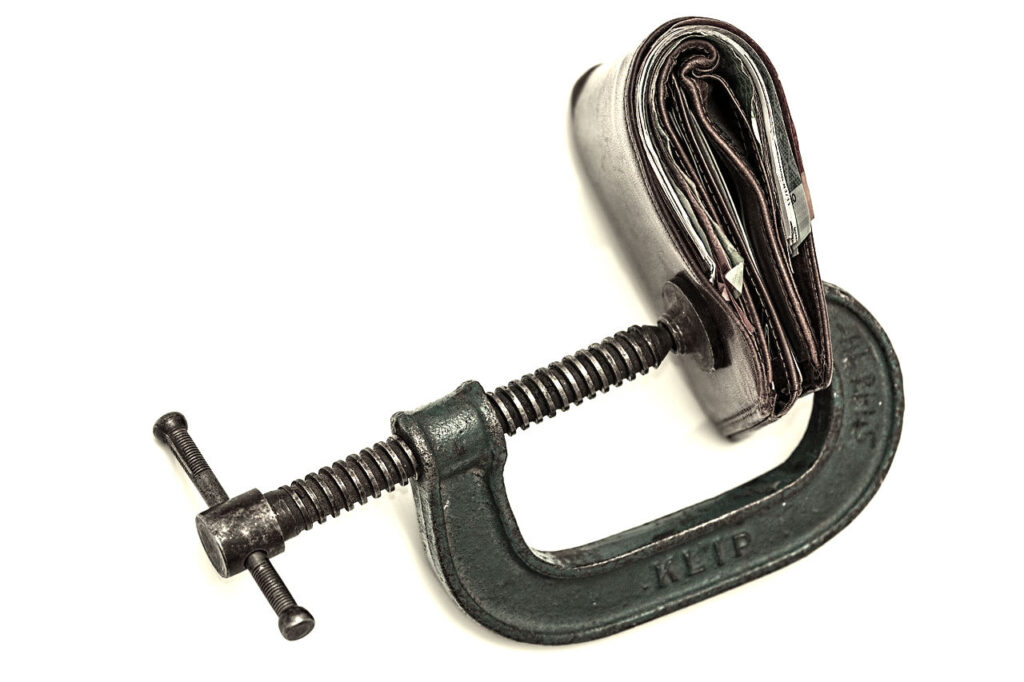As this was the second budget since the Conservatives have had the majority in parliament, George Osborne’s announcements did not come as such a shock. He announced from the off that the budget was going to revolve around ‘stability’. This is due to external pressures from the global economy which includes turbulent financial markets, slow growth in emerging markets and weak growth in developing economies. For this reason, the chancellor did have to announce that UK growth has been revised down and that we are expecting low productivity growth, which the Office for Budget Responsibility (OBR) believe ‘looks permanently damaged’.
Osborne began to reel off the governments positive statistics, which included the deficit, public debt and public spending all falling and the lowest proportion of people claiming out of work benefits since November 1974. However, there was great emphasis on the fact that the OBR has based these figure on the UK staying within the EU. Osborne used this opportunity to stress that leaving the EU would result in a period of disruption and uncertainty.
Finally, the chancellor moved onto the budget, where his 5 key target areas were reform for the business tax system, devolution of power to local government to encourage economic growth, major commitments of infrastructure, education and backing people who work hard and save. He also believes that he can hit his targets whilst spending no more than the UK receives in tax receipts.
So what’s in store for UK business
The ‘good’ news
Starting with the good news, Osborne appears to be keen to help UK SMEs after introducing the controversial dividend changes in the summer budget. The headline announcement in the budget was that corporation tax will fall from 20% to the new rate of 17% by 2020. This is said to ‘level the playing field’ and hopes to attract investment from multinationals, but with his plans to tackle tax evasion this may be counterproductive.
Our capital gains tax is said to be one of the highest in the developed world, at 28%. It is now being cut to 20% and for basic rate tax payers it will be cut from 18% to 10%, effective from this April.
Capital Gains Tax (CGT) on the sale of shares in unlisted companies has also been brought in line with entrepreneur’s relief. Provided you keep your investment for at least 3 years, you will only pay 10% CGT following the sale. This encourages saving and investment in “risky” unlisted companies without the need to be a director.
If you are a large firm the opportunity to align your tax payment dates closer to when you earn your profits will now come in 2019. Furthermore, companies can now use their losses more flexibly, but it is restricted to a maximum amount of profits that can be offset using past losses to 50% and 25% in the banking sector. He did not give much away on this policy, but he did say that it will only apply to around 70,000 business.
There have been some generous rate reliefs introduced on commercial property for SMEs and Micro entrepreneurs. The Annual threshold for small business rate relief is to be raised from £6,000 to a permanent maximum of £15,000 and the higher rate will rise from £18,000 to £51,000. This should mean that 600,000 businesses will pay no rates at all. The 500,000 microbusinesses can also benefit from paying no tax with two new tax allowances of £1000 a year for trading and property income.
Perhaps the most beneficial measure is the commercial property stamp duty falling to 0% on purchases up to £150,000, 2% on the next £100,000 and 5% on the top rate above £250,000. There is also a new 2% rate for high-value leases with net present value above £5m. This was effective from midnight.
Hopefully we will now see a sudden uptake of the business premises that have remained redundant across the Midlands for so long.
Self-employed individuals are definitely winners in this budget as class 2 National insurance contributions have been abolished saving over £130 a year and (our) time spent on your taxes.
Many businesses up and down the country will be happy that petroleum revenue tax ‘effectively abolished’. In a bid to help the oil and gas sector the chancellor has also cut the supplementary charge on oil from 20% to 10%. However, with the outlook for the oil price this may not be enough to save UK jobs.
The bad news
I guess the bad news originates mostly from the extensive tax crackdowns that the chancellor has implemented, as anti-tax avoidance and evasion measures are set to raise £12bn by 2020.
Much of the tax evasion is aimed at large companies and multinationals. First, he chose to cut debt interest payments used by larger firms to cut their corporation bills will be capped at 30% of UK earnings. This is to stop multinationals over-borrowing in the UK to fund activities abroad, whilst protecting those who can justify higher borrowing with a new group ratio rule yet to be announced.
Additional policies have been put in place for multinationals, which includes hybrid mismatch rules to prevent complex tax avoidance structures and the strengthening of withholding tax on royalty payments that encourages firms to shift money to tax havens. Although, the policy that might be most beneficial to UK SMEs will be to stop overseas suppliers storing goods in Britain and selling them online without paying VAT.
Osborne has often underlined the point that he wants to make the UK ‘open for business’. Tax avoidance from multinationals and large domestic organisations is a huge issue for the UK and many other countries that does need to be addressed. Let’s hope that these tax changes do not halt investment into the UK.
Personal service companies working for public sector organisations will no longer receive tax advantages through contract work. The onus to ensure those working with them pay the correct tax will be put on the public organisation and it will not only effect IT and legal contractors it will also wound celebrities such as Jeremy Paxman and Fiona Bruce.
If your business loans money to participators it will be now be taxed at 32.5%. Once the loan is repaid the company will be refunded by the government, but the loanee is still subject to tax as it is a benefit-in-kind, making it an expensive operation.
A real setback for both employees and business owners is the introduction of employer national insurance on termination payments. From 2018 not only will employees pay income tax over £30,000, but they will also attract national insurance meaning that the redundancy package will become a lot less lucrative.
Finally, if buy-to-let investors weren’t already down the chancellor confirmed that the stamp duty rates will definitely apply to large investors too.
Thankfully the personal taxation changes were slightly more positive..
Personal taxation
The personal allowance previously intended to rise from £11,000 in April 2016 to £11,200 in 2017. It will now rise to £11,500 in April 2017, which although it isn’t a lot it will make a difference to many people. Particularly when you combine this with the increase of the higher rate income tax threshold from £42,385 to £45,000 in April 2017. It should lift over 500,000 people out of the higher rate tax band.
Nevertheless, it is again savers the youngest, lowest income earners who are willing to save that have benefit the most from this budget.
Starting from April, everybody can take advantage of the Annual ISA limit that is increasing from £15,240 to a generous £20,000. The reason for such an increase could have been due to the introduction of the personal savings allowance, as there had been fears that it would discourage savers from using ISAs altogether.
Earlier on in the week it was also announced that the government will be offering a ‘help to save’ scheme that will allow those on in-work benefits to save £50 a month for two years and receive a 50% bonus after 2 years. They then have the chance to extend this to another two years, although realistically it may work for much fewer people than they hope.
Following on from the Help to Buy ISA announced in the last budget the government now plans to implement the ‘Lifetime ISA’. From April 2017 for anybody under 40 that saves £4 in the ISA will receive £1 and can deposit up to £4000 a year. This money can either be used to a first home or saved for retirement, as the bonus will be paid up until the saver is 50. Those wanting to withdraw money for a home can do so after a year and any money saved for a retirement can be taken out once they reach 60, although money can be withdrawn at any point without the bonus.
The Lifetime ISA has been put in place to address the disparities in the pension system, but when discussing it with others many are sceptical about the policy standing the test of time. Whether or not people will take the government up on their offer is an issue.
Osborne briefly mentioned that there would be tax reliefs on Independent Financial Advice, although full information is yet to be released. However, this has potentially been put in place to make up for the free Money Advice Service being abolished.
In line with the national living wage, the government will also increase the national minimum wage from 1st October 2016 to the following:
21 to 24-year-olds: £6.95 per hour
18 to 20-year-olds: £5.55 per hour
16 to 17-year-olds: £4 an hour
Apprentices: £3.40 an hour
This may be a positive for the UK’s minimum wage workforce, but it could potentially cause some cash flow issues for micro and small businesses.
The last point that I thought I would bring to your attention is the insurance premium rising by a further 0.5% and will reach 10%.
To conclude
Generally, the budget has not had such a negative impact on businesses this time around and promises some nice tax cuts. However, the OBR themselves have recognised that the chancellor will only avoid ‘breaking the third of his three fiscal promises by “shuffling” spending and tax receipts to engineer a £10bn surplus in 2019-20’. In fact, the weaker than expected outlook had blown a £56bn hole in the public finances over the next five years – more than twice the £27bn improvement Osborne was handed in the autumn statement.
In addition to this many of the policies in last year’s budget are yet to come into practice and with the chancellor’s heart set on tackling tax avoidance and evasion, business conditions could become much tougher. For many the lines between the advantages of being a business owner or remaining an employee are becoming much more blurred, which could be damaging to UK innovation.




